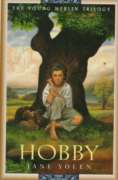
The story of the young Merlin’s coming-of-age continues in this thrilling sequel to Passager. “An enjoyable introduction to Arthurian fantasy.”–The Horn Book

The story of the young Merlin’s coming-of-age continues in this thrilling sequel to Passager. “An enjoyable introduction to Arthurian fantasy.”–The Horn Book
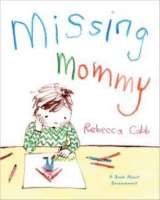
Daddy comforts and reassures a very young boy after Mommy dies.
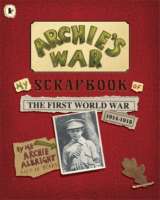
When Archie is given a scrapbook for his tenth birthday in 1914, he chronicles the next four years of his life using documents, artifacts, and comic strips.
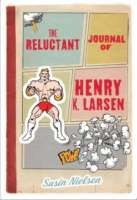
Thirteen-year-old Henry’s happy, ordinary life comes to an abrupt halt when his older brother, Jesse, picks up their father’s hunting rifle and leaves the house one morning. What follows shatters Henry’s family, who are forced to resume their lives in a new city, where no one knows their past. When Henry’s therapist suggests he keep a journal, at first he is resistant. But soon he confides in it at all hours of the day and night.
In spite of Henry’s desire to “fly under the radar,” he eventually befriends a number of oddball character, both at school and in his modest apartment building. And even though they know nothing about his past–at least, not yet–they help him navigate the waters of life after “IT.”
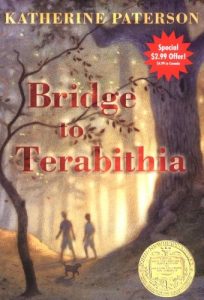 A secret world of their own. Jess Aarons’ greatest ambition is to be the fastest runner in the fifth grade. He’s been practicing all summer and can’t wait to see his classmates’ faces when he beats them all. But on the first day of school, a new girl boldly crosses over to the boys’ side of the playground and outruns everyone. That’s not a very promising beginning for a friendship, but Jess and Leslie Burke become inseparable. Leslie has imagination. Together, she and Jess create Terabithia, a magical kingdom in the woods where the two of them reign as king and queen, and their imaginations set the only limits. Then one morning a terrible tragedy occurs. Only when Jess is able to come to grips with this tragedy does he finally understand the strength and courage Leslie has given him.
A secret world of their own. Jess Aarons’ greatest ambition is to be the fastest runner in the fifth grade. He’s been practicing all summer and can’t wait to see his classmates’ faces when he beats them all. But on the first day of school, a new girl boldly crosses over to the boys’ side of the playground and outruns everyone. That’s not a very promising beginning for a friendship, but Jess and Leslie Burke become inseparable. Leslie has imagination. Together, she and Jess create Terabithia, a magical kingdom in the woods where the two of them reign as king and queen, and their imaginations set the only limits. Then one morning a terrible tragedy occurs. Only when Jess is able to come to grips with this tragedy does he finally understand the strength and courage Leslie has given him.
Suspended from school for cussing at a mean teacher, John “Spud”’ Sweetgrass at least still has his job selling french fries from a curbside “chip wagon.” But he notices that something stinks — literally. It’s the smell of rancid cooking oil at a polluted Ottawa beach. His suspicions aroused, Spud follows Dumper Stubbs, a creepy delivery man who services local restaurants and chip wagons. Spud gets angry when he sees Dumper living up to his name, dumping oil into a storm drain and causing terrible pollution in the river. When Spud blows the whistle, he loses his job. Enlisting the help of his buddy Dink the Thinker, and Connie Pan — whom he calls his girlfriend though she isn’t exactly that — Spud thinks he has a chance of regaining his job and stopping the Dumper’s harmful activities. In the background of this offbeat farce are serious issues that Spud must also deal with, including his father’s death, his mother’s withdrawal into grief, and his own awkward transition through adolescence. Brian Doyle expertly interweaves comedy and important contemporary concerns of young people in this vivid story with a message.
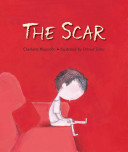
When his mother dies, a little boy is angry at his loss but does everything he can to hold onto the memory of her scent, her voice, and the special things she did for him, even as he tries to help his father and grandmother cope.
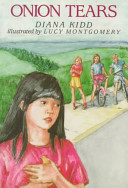
A little Vietnamese girl tries to come to terms with her grief over the loss of her family and her new life with the Australian family with whom she lives.
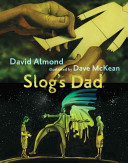
The ineffable nature of grieving and belief inspires a tender, gritty, and breathtaking work of graphic storytelling from the creators of The Savage. “Slogger, man,” I said. “Your dad’s dead.” “I know that, Davie. But it’s him. He’s come back again, like he said he would.” Do you believe in life after death? Slog does. He believes that the scruffy man on a bench outside the butcher shop is his dad, returned to visit him one last time. Slog’s friend Davie isn’t so sure. Can it be that some mysteries are never meant to be solved? And that belief, at times, is its own reward? The acclaimed creators of The Savage reunite for a feat of graphic storytelling that defies categorization. Eerie, poignant, and masterful, Slog’s Dad is a tale of astonishing power and complexity.